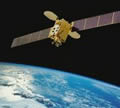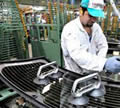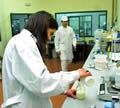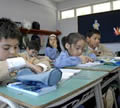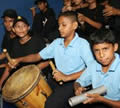- Reunión inter-regional de expertos sobre la medición de la cooperación Sur-Sur
- La SEGIB lanza newsletter con nuevas historias sobre cooperación sur-sur y triangular
- ¿Cuál es el valor de las universidades públicas hoy en Argentina?
- Una cumbre empresarial entre Corea del Sur y América Latina tendrá lugar esta semana
- Cuba en la Cooperación Sur-Sur: el camino para la integración
- Good Practices in South-South and Triangular Cooperation for Sustainable Development – Volume 4
- Global South-South Development Expo 2022 Concept Note
- Cooperación Sur-Sur en América Latina en tiempos de pandemia
- Valoración de la cooperación Sur-Sur en seis países seleccionados de América Latina y el Caribe: desafíos compartidos en la implementación de la Agenda 2030 para el Desarrollo Sostenible
- Desarrollo en transición: propuesta de concepto y medición para una cooperación renovada en América Latina y el Caribe
CARICOM Secretary-General Ambassador Irwin LaRocque highlighted this feat in accepting the letters of credence of His Excellency Ross William Tysoe, Non-Resident Plenipotentiary Representative of Australia to CARICOM, at the Headquarters of the CARICOM Secretariat, Georgetown, Guyana.
Taken from CARICOM Website
Georgetown, April 9- Joint cooperation efforts of the Caribbean Community (CARICOM) and Australia have contributed to the momentous achievement of a globally binding arms treaty, recently concluded by the United Nations General Assembly.
CARICOM Secretary-General Ambassador Irwin LaRocque highlighted this feat in accepting the letters of credence of His Excellency Ross William Tysoe, Non-Resident Plenipotentiary Representative of Australia to CARICOM, at the Headquarters of the CARICOM Secretariat, Georgetown, Guyana.
Collaboration, the Secretary-General said, had allowed "our countries' voices to be better heard by the international community and our position to be better understood".
"We have jointly lobbied for the adoption of a robust Arms Trade Treaty (ATT) which would address the proliferation of small arms and light weapons (SALW) - a threat to the very fabric of Caribbean societies," Secretary-General LaRocque told the Australian envoy. He added that the treaty was "a tribute to the multilateral process that allowed the global family of nations to partner in the pursuit of the safety and best interests of the global community through negotiation, compromised and democratic process".
The Secretary-General outlined several other successful areas of collaboration that have characterised the maturation of cooperation between CARICOM and Australia, formalised in November 2009. That cooperation framework had been established within the margins of the Commonwealth Heads of Government Meeting (CHOGM), in Port of Spain, Trinidad and Tobago, between the leaders of CARICOM and Australia.
At that meeting, a Memorandum of Understanding paved the way for Australia to make some $60 million (AUS) available over four years to CARICOM for cooperation in areas of special mutual interest including climate change, disaster risk reduction and emergency management; regional integration, including trade facilitation; education, including in the fields of science and technology, provision of scholarships and training of diplomats; university co-operation; food security and agricultural co-operation; renewable energy, microfinance; border security and sport, youth and culture.
Since that first formal meeting, the Secretary-General pointed out, CARICOM-Australia relations have developed with "remarkable alacrity and depth".
"I suspected that neither side had anticipated at that time that relations would have advanced to the current, most satisfactory state in such a short time," Ambassador LaRocque said.
Secretary-General LaRocque drew attention to the significant support Australia provided in Haiti's earthquake recovery, re-vegetation efforts, and improvement to the sanitation facilities in order to combat the scourge of cholera in the Member State.
Ambassador LaRocque stated that he anticipated technical cooperation between the two parties would only deepen and widen in the coming years, pointing to the implementation of a practicable solution to prevent Non-Communicable Diseases in CARICOM and the Pacific region, and the development of innovative and entrepreneurial opportunities for youth.
Commenting on the speedily developing relations between CARICOM and Australia in his remarks, the newly accredited Australian Plenipotentiary Representative said that his country had a reputation for "doing a lot in a short space of time." He described the CARICOM-Australia relations as "effective and mature" growing from a donor, delivery platform to one of "genuine collaboration".
Mr. Tysoe added that the relationship had evolved to "institution-to-institution capacity building," noting that he was convinced Australia's aid programmes were "in safe hands".
The Australian envoy sounded praise for what he described as "impressive work" being carried out by the Caribbean Community Climate Change Centre (CCCCC) in Belize, which he experienced first-hand during a recent visit there.
Specifically, he lauded the Centre's effective management of Australia's technical and cooperation assistance in supporting Belize's Barrier Reef Marine System, adding that Australia was pleased to have contributed to this project which also provided early warning for climate change. The project, the Ambassador said, was a "fantastic example" of CARICOM-Australia cooperation.











